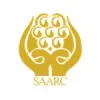Current Open Positions at Oxfam in Nepal
Top Jobs

WWF Nepal
Project Associate-Inclusive...

British Council
Call for Applications: Supe...

British Council
Call for Grant Applications

Shangri La Development Asso...
Technical Officer

Shine Education Services Pv...
Japanese Language Coordinat...

WWF Nepal
Finance & Compliance Office...

WWF Nepal
Project Officer, Managing t...

WWF Nepal
Project Manager, Managing t...

WWF Nepal
MEL & Communications Office...

WWF Nepal
Project Associate, Managing...

WWF Nepal
Project Assistant, Managing...

Safer Migration (SaMi) Prog...
CALL FOR EXPRESSION OF INTE...

Fastenaktion Nepal
Call for Expression of Inte...

Welthungerhilfe
Terms of Reference To condu...

Atoot
Programme Officer

SAARC Tuberculosis and HIV/...
Administrative Officer (GSS...

NIBC Education Foundation
1. Study Abroad Counselor /...

National Electric and Build...
Sales Representative (Sales...

Mirai Global Education and...
Education Councelor

BlinkNow Foundation
Program Coordinator - STEP...

Verisk Nepal Pvt Ltd
Java Developer (Mid- Senior...

Verisk Nepal Pvt Ltd
Full Stack Developer (.Net/...



